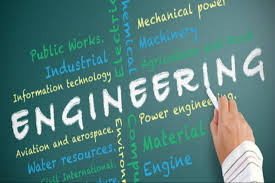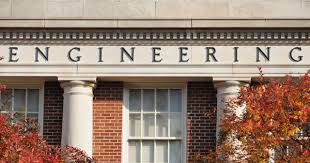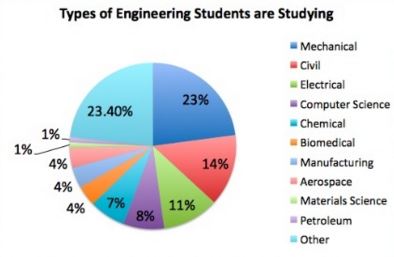Engineering is the application of science and math to solve problems. Engineers figure out how things work and find practical uses for scientific discoveries. Scientists and inventors often get the credit for innovations that advance the human condition, but it is engineers who are instrumental in making those innovations available to the world.
practical uses for scientific discoveries. Scientists and inventors often get the credit for innovations that advance the human condition, but it is engineers who are instrumental in making those innovations available to the world.
Engineering is one of the cornerstones of STEM education, an interdisciplinary curriculum designed to motivate students to learn about science, technology, engineering and mathematics. Particularly, engineers require in-depth knowledge of mathematics, physics and computer applications such as coding, simulations and computer-aided design. This is why most college programs include basic engineering courses in a wide range of topics before students choose to specialize in a particular area.
According to the U.S. Bureau of Labor statistics the field of engineering is expected to grow by 10 percent in the coming decade. In recent years, the prospects for college graduates have been fair at best, but engineering graduates experience a much more favorable job market. Experts say demand for engineers will continue to grow as governments and industry work to meet the challenges of a growing global population and dwindling resources.
U.S. News and World Report- Education Edition ranks colleges in several different categories, such as National Universities, and programs for Business, Engineering, and Teaching. Here are the top 50 US colleges in Engineering:
- MIT
- Stanford
- UC Berkeley
- California Institute of Tech (Cal Tech)

- Georgia Institute of Tech (Georgia Tech)
- University of Illinois
- Carnegie Mellon University
- University of Michigan- Ann Arbor
- Cornell University
- Purdue University
- Princeton University
- University of Texas- Austin (UT)
- Northwestern University
- University of Wiscosin
- Johns Hopkins University
- Texas A&M University- College Station
- Virginia Tech
- Columbia University (NY)
- Duke University
- Pennsylvania State University (Penn State)
- Rice University
- University of California- Los Angeles (UCLA)
- University of California- San Diego (UCSD)
- University of Maryland
- University of Minnesota
- University of Washington- Seattle
- Harvard University
- Ohio State University
- University of Pennsylvania
- University of Southern California (USC)
- North Carolina State University- Raleigh
- Rensselear Polytechnic Institute
- University of California- Davis
- University of California- Santa Barbara
- University of Virginia
- Iowa State University
- University of Colorado- Boulder
- University of Florida
- Vanderbilt University
- Yale University
- Arizona State University- Tempe

- Brown University
- Case Western Reserve University
- Colorado School of Mines
- Lehigh University
- University of Notre Dame
- Washington University in St Louis
- Dartmouth College
- Michigan State University
- University of California-Irvine
University of Houston, University of Texas-Dallas, and Texas Tech University are all tied for #87
Southern Methodist University (SMU) in Dallas and UT Arlington are tied at #98.
Students interested in pursuing engineering in college need to do several things to prepare themselves academically and for admissions into top schools. Students should take as many Math and Science courses as possible, especially at the Pre-AP, AP, or IB level. Students who are able to advance to Calculus, Physics, and Computer Science courses by their junior year will have an advantage. Students should also do some research into different fields within engineering, by speaking with faculty, current professionals in the field, current engineering students, and recent graduates. Other possible activities include joining a professional engineering society or organization in your area, volunteering or internship with an engineering firm, summer academic camps that expose students to engineering fields and degree plans.
Need help getting into one of these top Texas universities? Contact us for help in the Houston area or for virtual college consulting assistance!
Related Articles:
Why College Students Leave the Engineering Track

